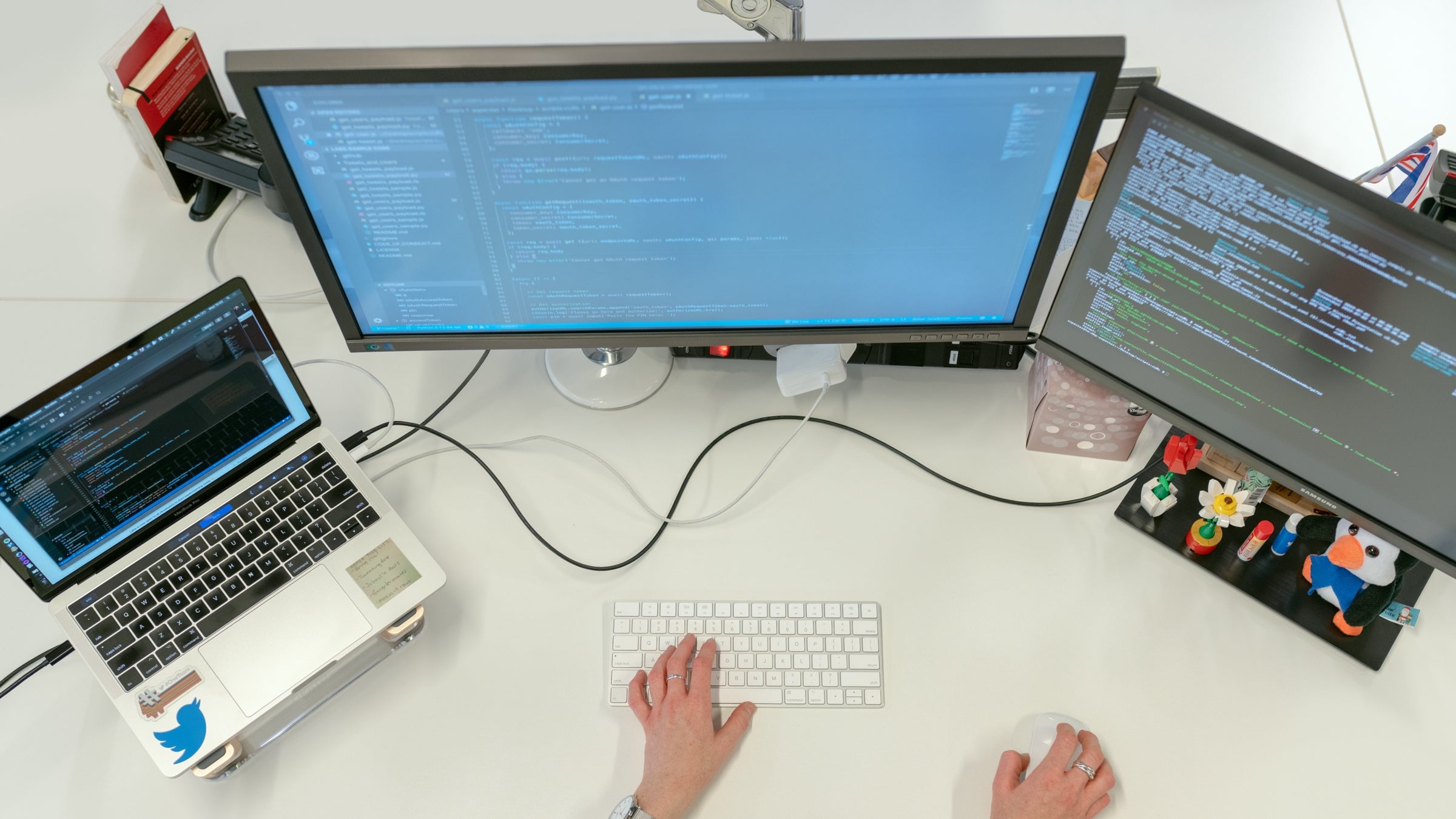Why Selecting the Right Software Development Partner Can Transform Your Project
Why Selecting the Right Software Development Partner Can Transform Your Project
Blog Article
Committed Developers vs. In-House Teams: Which Is Right for You?
The choice between making use of dedicated developers and keeping an internal team is a significant one that can influence the trajectory of your projects and total service approach. Conversely, in-house groups contribute to a cohesive firm culture and a nuanced understanding of long-lasting objectives.
Comprehending Dedicated Designers
The expanding need for specialized abilities in the technology industry has actually brought about the introduction of specialized programmers as a sensible solution for lots of companies. These professionals are usually gotten on a project basis, allowing business to utilize specific competence without the lasting dedication related to permanent hires. Dedicated designers are frequently embedded within a client's team, supplying flexibility and scalability to satisfy task requirements.
This design enables organizations to access an international talent swimming pool, which is specifically helpful in a rapidly developing technological landscape. Committed programmers can be sourced from numerous geographical locations, making sure that business can locate the appropriate ability at affordable prices. They often bring a riches of experience and understanding, having worked on varied tasks throughout various markets.
Furthermore, specialized designers can focus specifically on the tasks available, boosting productivity and efficiency. They are equipped to incorporate flawlessly right into existing operations, teaming up carefully with in-house teams to achieve project purposes. This strategy not only decreases the burden of recruitment and training but also permits companies to stay active, adjusting rapidly to changing market needs and technological advancements.
Advantages of In-House Teams

Additionally, internal groups have a tendency to have a much deeper understanding of the firm's goal, values, and goals. This positioning can improve employee engagement and inspiration, as employee feel extra attached to their work and the organization's success. Additionally, having a dedicated internal team enables for far better placement of strategies and goals, as these participants are regularly concentrated on the firm's priorities.
In-house groups additionally help with quicker decision-making procedures, as they can react a lot more swiftly to modifications and difficulties. The recognized partnerships and knowledge with company procedures enable structured process and minimized miscommunication. Inevitably, the mix of a natural culture, alignment with organizational objectives, and effective communication makes in-house groups an important property for several organizations, specifically those wanting to grow lasting development and development.
Cost Considerations
When evaluating cost considerations, both specialized programmers and in-house groups present distinct financial effects for organizations. Engaging devoted designers generally entails a pay-per-project or per hour price design, which can be affordable for services with rising and fall task demands. This strategy permits adaptability in scaling sources up or down, ensuring that business only pay for the services they need.
In contrast, in-house teams involve taken care of expenses, including wages, benefits, and overhead costs such as workplace area and equipment. While this design offers greater control and prompt schedule of sources, it may bring about greater long-term expenditures, specifically if the work does not validate a full-time personnel.
Furthermore, companies need to consider the surprise expenses connected with recruitment and training of in-house employees, which can even more strain budgets. Sometimes, the time and sources invested on managing link an in-house team can detract from the organization's core company objectives.

Task Administration and Flexibility
Job monitoring and versatility are important elements that affect the option in between internal groups and committed programmers. Committed developers generally provide a high degree of flexibility, allowing companies to scale resources up or down based on job demands. This dexterity can be particularly beneficial for businesses experiencing rising and fall workloads or those looking for to innovate quickly. Devoted teams frequently have actually developed processes for handling tasks properly, leveraging details techniques like Agile or Scrum, which promote repetitive progression and adaptability.

Inevitably, the choice in between internal groups and committed programmers rests on the desired degree of flexibility and the certain job administration demands. Firms must review their functional dynamics, job intricacy, and source accessibility to identify which choice aligns ideal with their calculated objectives.
Making the Right Choice
Picking the right advancement technique-- specialized developers or internal groups-- requires a cautious assessment of numerous aspects that align with a company's tactical objectives. nearshore software development. Initially, take into consideration the nature of the task. Dedicated programmers might be more appropriate if it requires specialized skills or a fast scale-up. On the other hand, in-house teams can give far better continuity and assimilation with existing workers.
Next, examine your budget. Dedicated developers commonly provide an affordable service for short-term tasks, while internal groups may sustain my latest blog post greater lasting costs as a result of incomes, advantages, and expenses costs. Assess the level of control and collaboration desired; internal groups normally promote stronger interaction and positioning with firm culture.
In addition, consider the moment framework. If immediate results are essential, specialized programmers can be onboarded quickly, whereas constructing an internal group requires time for recruitment and training. Consider the long-lasting vision of your organization. Spending in an in-house team might produce better returns over time if continual advancement is important. Eventually, the decision depends upon an extensive evaluation of these elements, making certain positioning with your company's operational needs and general goals.
Conclusion
In verdict, the decision between specialized programmers and in-house teams hinges on task needs and organizational purposes. Conversely, in-house groups grow a cohesive culture and deeper positioning with long-term goals.
The choice between making use of devoted developers and keeping an in-house team is a considerable one that can impact the trajectory of your tasks and total company strategy.Job administration and adaptability are critical elements that influence the choice between committed developers and internal teams. software engineering staffing.In contrast, in-house teams might excel in keeping a constant task monitoring structure due to their familiarity with the organization's society and long-lasting objectives. Committed programmers usually offer a cost-effective solution for short-term tasks, while in-house teams may sustain greater long-term expenditures due to wages, benefits, and overhead expenses.In verdict, the choice between specialized programmers and internal teams pivots on project needs and organizational purposes
Report this page